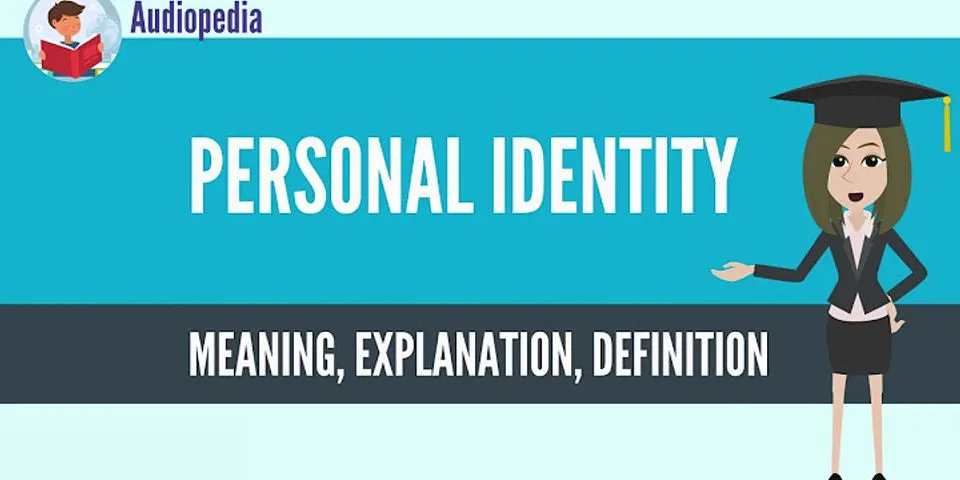Dissociative amnesia is a type of amnesia where you can’t remember important information about your life including things like your name, family or friends, and personal history. It can happen due to intense trauma or stress. Show
Continue reading as we explore more about this condition, what causes it, and how it’s treated. Dissociative amnesia (DA) is a dissociative disorder. Dissociative disorders are a type of mental illness. They’re characterized by disconnect between things like your memories, identity, and surroundings. If you have a dissociative disorder you may feel disconnected from the world that surrounds you. Periods of dissociation can last for hours or days and in some cases can last longer — for weeks or months. There are a few different types of DA:
DA can be characterized by the following: Memory lossMemory loss can be complete (generalized) or relate to a particular period of time (localized). If you have DA, you might forget things relating to personal history, identity, or events, but retain general information. In some types of amnesia, such as that associated with dementia, an individual has difficulty forming new memories. Aside from the amnesia, people with DA appear to be able to make new memories and retain cognitive functions. People with DA often seem to have little concern about their amnesia, whereas other kinds of memory loss can cause a person distress. Additionally, when DA subsides, most people recover their memories. Association with a traumaDissociative disorders such as DA are often linked to a specific traumatic or stressful life event. Examples include experiencing abuse or taking part in military combat. People with DA may not remember information as it relates to this period of trauma. One example is a person who experienced abuse being unable to recall details or information from the time period when the abuse occurred. DurationMany cases of DA are short, lasting hours or days. In some cases, they may last longer. Cannot be explained by another conditionMany times, memory loss can be explained by another medical condition. However in people with DA, memory loss cannot be explained by other conditions, such as brain injury, stroke, or use of alcohol or drugs. DA is linked to traumatic or intensely stressful events. Examples can include things like:
There are several thoughts regarding why these events can lead to DA. It’s likely that a complex combination of them play a role in the development of the condition:
To diagnose DA, a doctor will first take a thorough medical history and perform a physical examination. This can help them to rule out other causes of amnesia, such as:
If a physical cause of amnesia can be ruled out, you’ll be referred to a mental health specialist, such as a psychologist or psychiatrist. This is someone who is trained to identify and diagnose various mental illnesses. A psychological exam will be performed in order to gather information and get a good idea of your life experiences as well as your level of functioning. You’ll be asked about your symptoms as well as your behaviors, thoughts, and feelings. In addition to a psychological exam, other tools may be used to help make a diagnosis. One example is the Diagnostic and Statistical Manual of Mental Disorders (DSM-5), which is published by the American Psychiatric Association. The goals of DA treatment include:
Treatments for DA include therapy and medications:
DA is typically short lived, however in some cases it can last for weeks or even months. It’s also possible that you can have multiple episodes of DA over the course of your life. Overall, the outlook for DA is good. In most people, lost memories eventually return, sometimes without any treatment. Memory recovery can either occur suddenly or gradually over time. The prognosis for DA can vary depending on the type and severity of the amnesia as well as your life situation. Seeking prompt treatment of DA and the conditions that can occur along with it can also significantly improve outlook. DA is when you forget personal or autobiographical information. It occurs in the absence of another health condition that could cause amnesia. It typically lasts for hours or days, but can sometimes last longer. DA can be linked to a very stressful or traumatic event, such as abuse, military combat, or natural disasters. People who experienced abuse as a child or a traumatic situation during their lifetime are more at risk for developing the condition. Most people with DA eventually recover their memories, often in the absence of treatment. However, making sure that you receive timely treatment can improve your outlook. Which type of dissociative disorder does the patient who suddenly travels away from home and lacks the ability to recall their identity and past life events have?Travelling to a different location or taking on a new identity. You might travel to a different location and take on a new identity for a short time (without remembering your identity). A doctor or psychiatrist might call these experiences dissociative fugue.
What are the four types of dissociative disorders?Dissociation is a mental process where a person disconnects from their thoughts, feelings, memories or sense of identity. Dissociative disorders include dissociative amnesia, dissociative fugue, depersonalisation disorder and dissociative identity disorder.
What are the 5 types of dissociation?There are five main ways in which the dissociation of psychological processes changes the way a person experiences living: depersonalization, derealization, amnesia, identity confusion, and identity alteration.
In which disorder person forgets all his memory related to a particular person?Dissociative amnesia is one of a group of conditions called dissociative disorders. Dissociative disorders are mental illnesses in which there is a breakdown of mental functions that normally operate smoothly, such as memory, consciousness or awareness, and identity and/or perception.
|





















